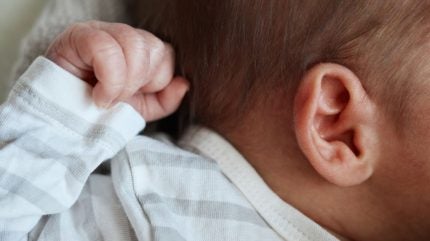

Sensorion has completed subject enrolment in the first cohort of Phase I/II Audiogene trial of gene therapy injection, SENS-501 for treating Otoferlin (OTOF) gene-mediated hearing loss.
The trial is designed to assess the tolerability, efficacy, and safety of the gene therapy to address hearing loss in a specific group of infants and toddlers aged six to 31 months who have not received cochlear implants.

Discover B2B Marketing That Performs
Combine business intelligence and editorial excellence to reach engaged professionals across 36 leading media platforms.
Additionally, the trial will assess the clinical safety, ease-of-use, and performance of the company’s delivery system.
By focusing on the early years of life, when brain plasticity is at its peak, the trial seeks to increase the chances for the paediatric population with pre-linguistic hearing loss to develop normal speech and language skills.
The trial is structured with two cohorts receiving different doses and an expansion cohort at the selected dose. The surgical procedure for intra-cochlear administration of the therapy was well tolerated for all three subjects in the first cohort, with no serious adverse events reported.
Sensorion CEO Nawal Ouzren said: “I am very pleased with the progress Sensorion has realised in its Phase I/II gene therapy clinical trial. The injection of the third and last patient of the first cohort, less than a year after the clinical trial application authorisation, is a major accomplishment for Sensorion.

US Tariffs are shifting - will you react or anticipate?
Don’t let policy changes catch you off guard. Stay proactive with real-time data and expert analysis.
By GlobalData“The surgery of the infant was uneventful, and no serious adverse events were reported. I am very excited about the KOL event we plan in early 2025, with leading field experts, to present and comment on a fuller set of data measurements.”
The primary endpoint for the initial part of the dose escalation trial is safety, while the primary efficacy endpoint for the second part of the expansion phase is auditory brainstem response (ABR).
SENS-501 involves introducing a functional OTOF gene into hair cells using viral vector technology to restore normal auditory signal conversion and hearing.
The gene therapy programme is part of the RHU AUDINNOVE consortium, which includes the company along with Necker Enfants Malades Hospital, the Fondation pour l’Audition, and Institut Pasteur with partial funding from the French National Research Agency’s ‘investing for the future’ programme.
In June last year, the company reported positive outcomes from the Phase IIa trial of SENS-401 for the prevention of residual hearing loss following a cochlear implantation.
Cell & Gene therapy coverage on Clinical Trials Arena is supported by Cytiva.
Editorial content is independently produced and follows the highest standards of journalistic integrity. Topic sponsors are not involved in the creation of editorial content.




